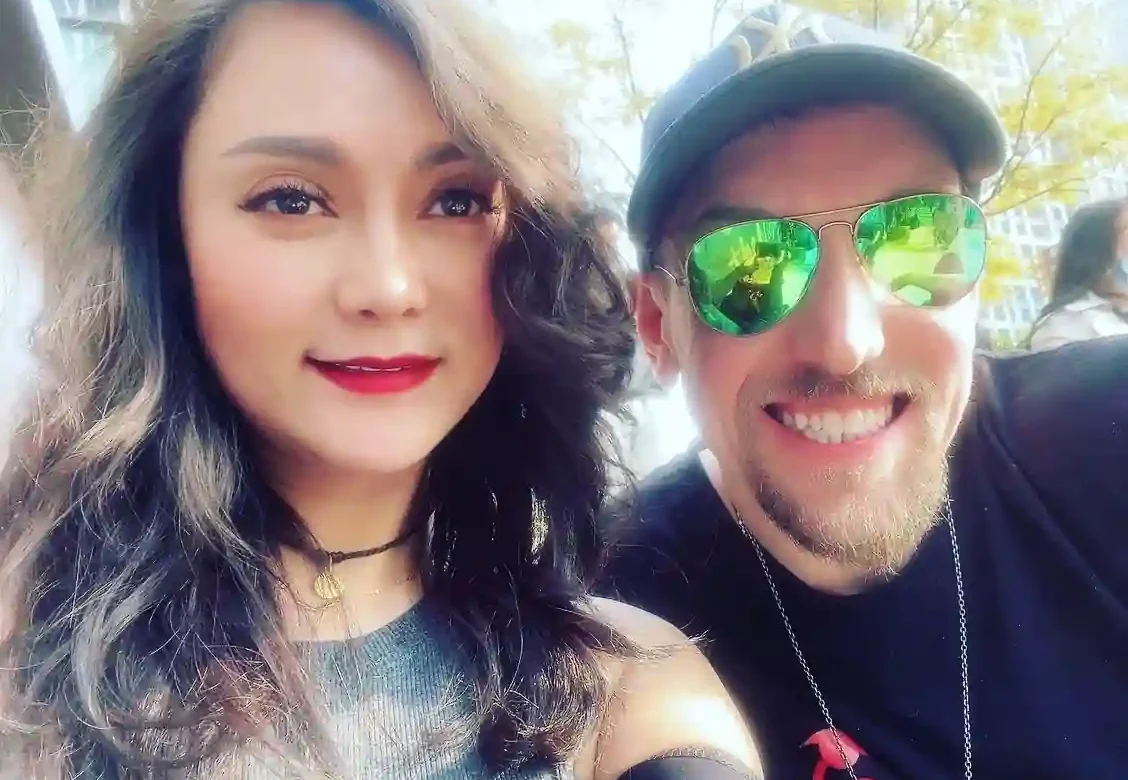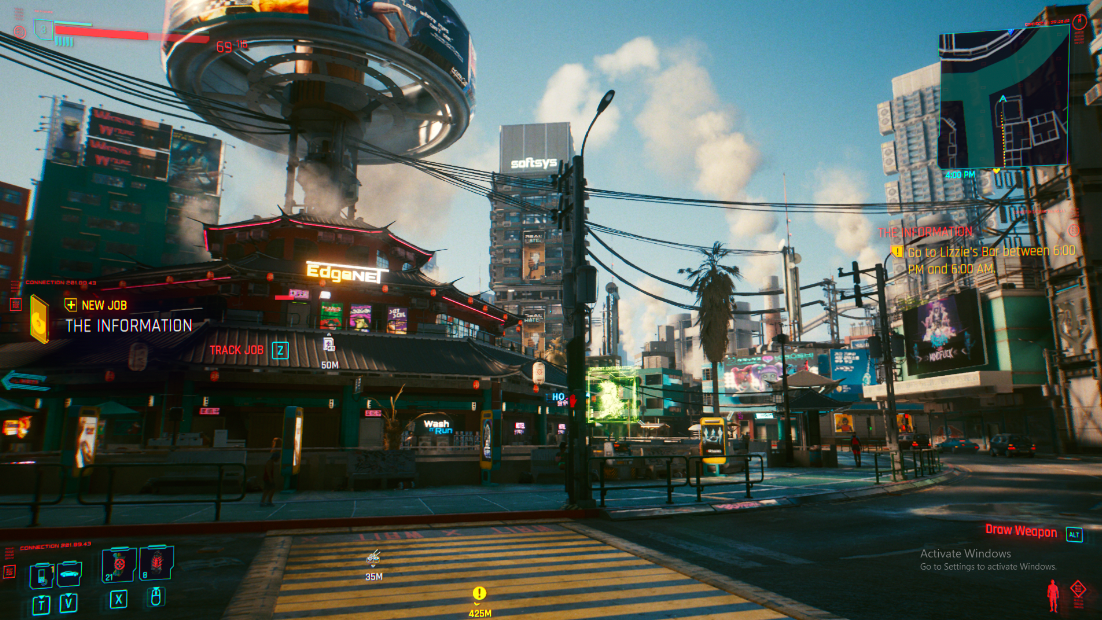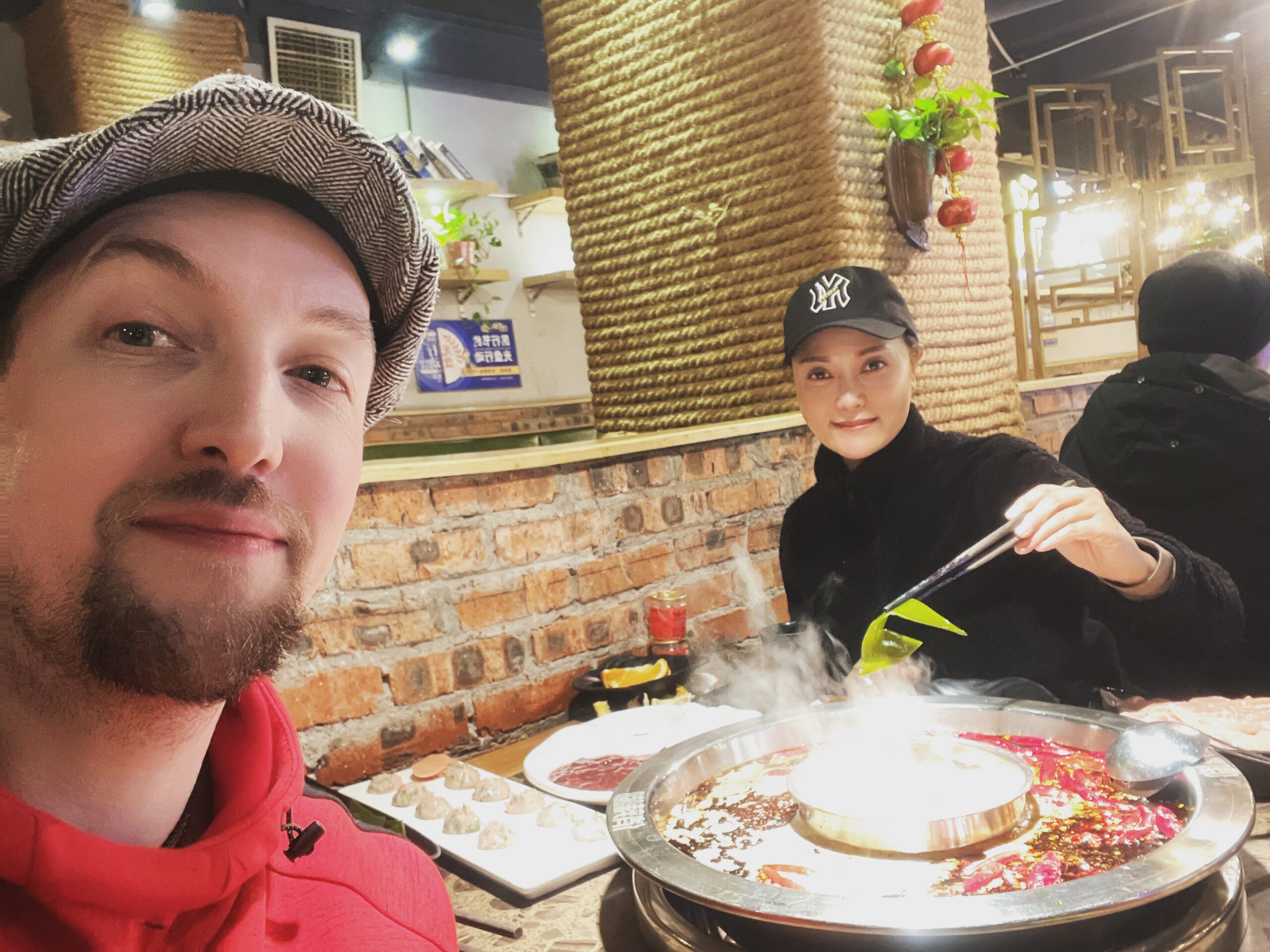An exclusive behind-the-scenes look at an interview that will surely be edited for quality, content or editorial space, if it wasn’t so preposterously long that Alex doesn’t ghost me altogether. Regardless, there might be a book here.
Editor’s note from JK: After submitting this, Xiaolin and went had a lovely weekend and went to see Hugh Jackman’s new movie, The Son, in theatres, a follow-up to Florian Zeller’s The Father. It was incredibly sobering and impactful for me to see, and reminded me of so many parallels to my own very perilous teenage years. Perhaps, although sometimes seeming hedonistic, frivolous, and wasteful of time, our most valuable resource on this planet, the incredibly vibrant, colorful, and interesting years of self-medicating and absorbing experience years as a music performer, festival DJ, and socialite was necessary to cocoon me from the inexplicable pain and suffering of ennui, of being a sensitive soul with a broken heart, and those years were in fact absolutely necessary to allow me time to learn, grow, love and forgive the universe for birthing me in some a troubled era in the first place. In the end, the movie is quite sad, but reminds me by still being here, my life itself is a victory. Being a teenager wasn’t easy, but we made it, didn’t we? <3 If you’re a teen or young person in crisis, you’re not alone, and I encourage you to hang in there. You never know what a remarkable thing life might become tomorrow if you don’t give up. Please check out https://www.crisisconnections.org/teen-link/ – they can help.
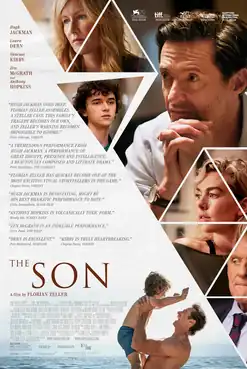
Alex from Not-For-Vanity: Hi Jorah, thank you for taking the time to answer a few questions. Having looked at your bio on your website, it seems to me you’ve already lived a thousand lives… Can you introduce yourself to our audience? Who is Jorah Kai?
Jorah Kai: Hi Alex, nice to meet you. First off, thanks so much for asking me to do this interview. Writing is often a lonely grind, and the gratification of sharing your work is delayed immeasurably compared to music or visual arts. Whenever someone wants to know about a writer’s work, an angel gets their wings. Please call me Kai if you like; most of my friends do, and I must say, you’ve asked me a question that’s got me utterly stumped, which has only happened a couple of times in my life. I must have stared at this question for a week before I blinked, but I will do my best to answer so profound a question as who I am; please forgive me if I do it poorly.
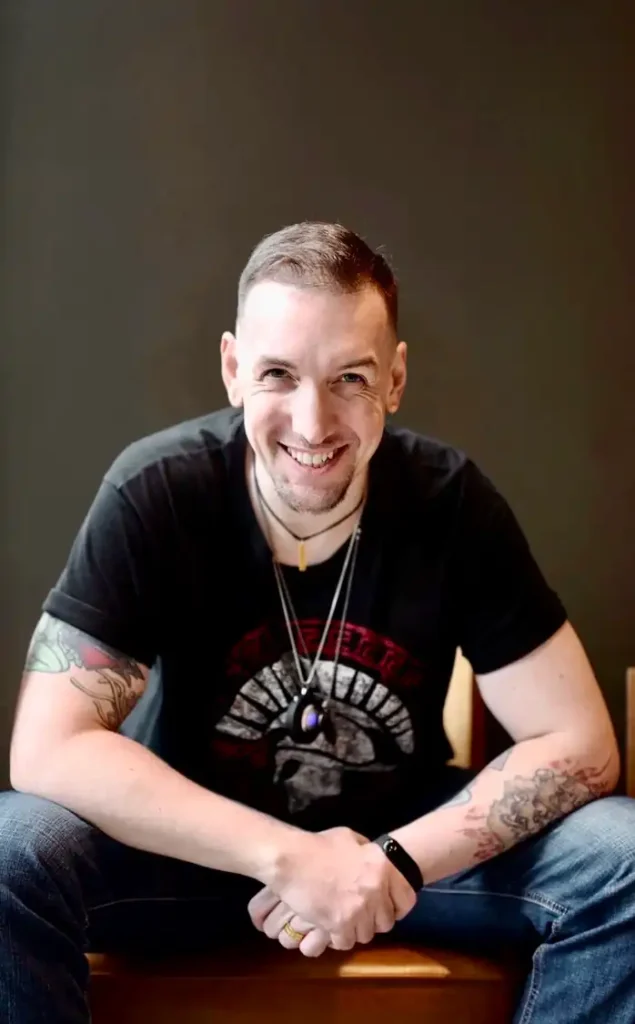
As the caterpillar said to Alice, “Who are you?” I’ve spent my life trying to figure that question out. As a young lad, I wanted to be a writer, and somebody told me to write what I knew. Knowing I knew very little, I set out to experience everything I could … 1000 lifetimes indeed. I’ve had every odd job under the sun. I became something of a social chameleon. As a child, I spent a year at a tough urban primary school, telling jokes to older boys and girls who had me in the hospital several times with pencils and other sharp objects shoved in places where you shouldn’t put pencils. I was funny, I swear. The next September, my mom’s friend encouraged her to apply for a scholarship. I entered a prestigious Hebrew private school (I wasn’t Jewish, which makes it all the more absurd) across the street called Hillel academy. I remember they gave me a new name in the cloakroom before they pushed me out on stage into the grade 1 class: Noah Ross, named after the man who built a boat to save humanity. No pressure.
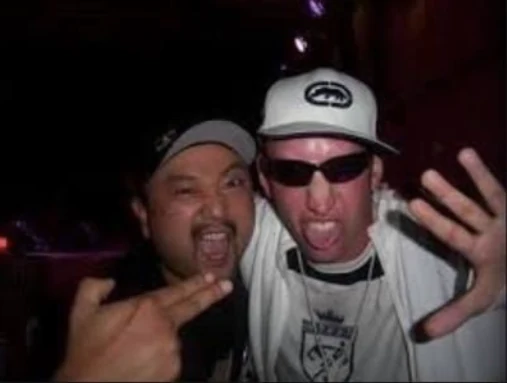
I think I’ve spent a lifetime trying to live up to that name, which had nothing to do with me (years later, when I was hosting events and building warm artistic communities and arks in cold concrete jungles, the theme haunted me). Then they introduced me, and I tried to learn a whole new alphabet. I think I had a mental breakdown about three months in, a total identity crisis, and returned to the tough urban school for the rest of the year. I remember the highlight of Hebrew private school was the tuna fish sandwiches, and they would cut the crusts off, which should surprise no one with even a rudimentary knowledge of their practices. No, I was not Jewish, but it was a primer in playacting. I returned to the tough school and told a joke in class that got a pencil so far up my nose I think my brain was bleeding. A supply teacher told my parents that I would probably thrive better if I could get transferred to the school up the hill, and surprisingly, that worked out. My new best friends were the son of a government minister and the stepson of the president of South Africa – and this was a year before he stepped down to support Nelson Mandela. On a trip to old Quebec City, I gave that boy a bag of gummy bears that impressed him so much that through the butterfly effect, I wonder how much weight those candies had on the history of that country and the legacy of apartheid. Regardless, I had seen three very different worlds and imagined different futures, all before I was six years old.
As a teenager, I got into role-playing games with much older kids and then into electronic music – back then, it was called the ‘rave’ scene. That community was really wild for its beauty and tragedy, and diversity. I met orks, goblins, fairies, movie stars, poets, and gangsters. Tom Greene tried to steal my girlfriend once, and the entire dancefloor of a club I was DJing at, live on MTV and then Drew Barrymore danced with me under the pale moonlight, and Harrison Ford gave my date his best rascally grin, but we laughed and ran away and danced in the dark until dawn. For a Canadian boy from a small town, it was a lot to take, but it was just life. It happened.
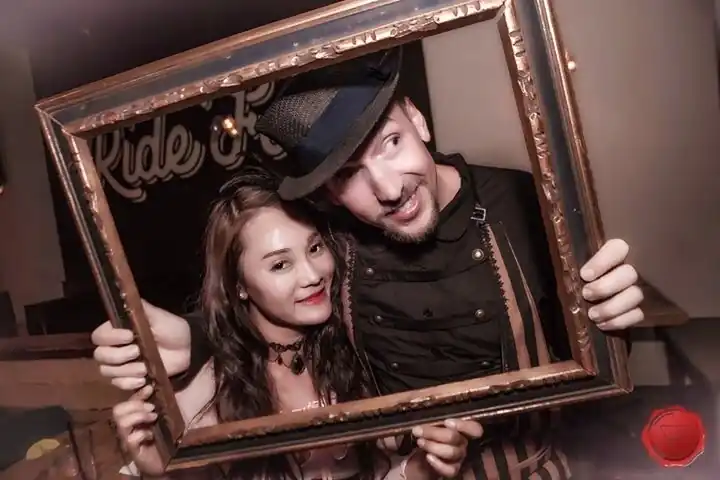
Who am I? In the end, I’m anyone, I’m everyone, I’m no one. I would like to say I’m noble because I’m made of stars, and I’m humble because I’m made of earth. I guess I’m just a guy with many stories, from many different places, over the years.
Was that a dodge? I didn’t mean it to be. I’ll try to be more specific. I’ve been a gamer nerd, a goth teenager, and a hip-hop DJ in a rising group, making records and breaking bridges as we went. In an incarnation that lasted for decades, I was a touring music producer and DJ for a bass music group that headlined major festivals and played multiple Olympics for leaders of the world and millions on TV. I DJ’d for the Queen of England, at least legally, and fire breathed for 10,000 people with eyes like saucers and shut down Toronto’s Dundas Square with a pirate renegade float during the art night Nuit Blanche dressed as pirates with my childhood friend (bass music superstar) ill Gates, and then we did it like ten more years in a row – with the help of friends that do events like ‘world’s largest light sword battle’ and got sued by Disney and ‘world’s largest pillow fight’ – at a time when it felt safe for Alec Baldwin to rage tweet at you that you were ruining New York. Oh, we were summer children. I ran a studio with ill Gates, and he’d go hang with Bill Gates at Sundance and come back, and we’d have ringtones to make to sell to the big guy, and when he passed on some of the pretty ones, we wrote fart tones and silence for big bucks. One night Gates and I were hanging out with Bassnectar (when that was still cool) and Skrillex at Shambhala, and this guy in a Squirrlex costume stalked us – he claimed to be after Sonny’s nuts. One day I visited a friend to play chess and drink tea, and a dozen gang bangers showed up to rob him. Wrong place, right time, but I got the leader in a small room (there was a debate as to who was trapped in there with whom), found two claw hammers in a drawer, and used a combination of intense eye contact, logic, and philosophy to make a compelling case for them to leave right away and never come back. Or the time I accidentally dated a gangster who got kidnapped by movie stars and escaped from an evil billionaire on an island fortress surrounded by sharks. Because that’s a real risk if you stay out too late.
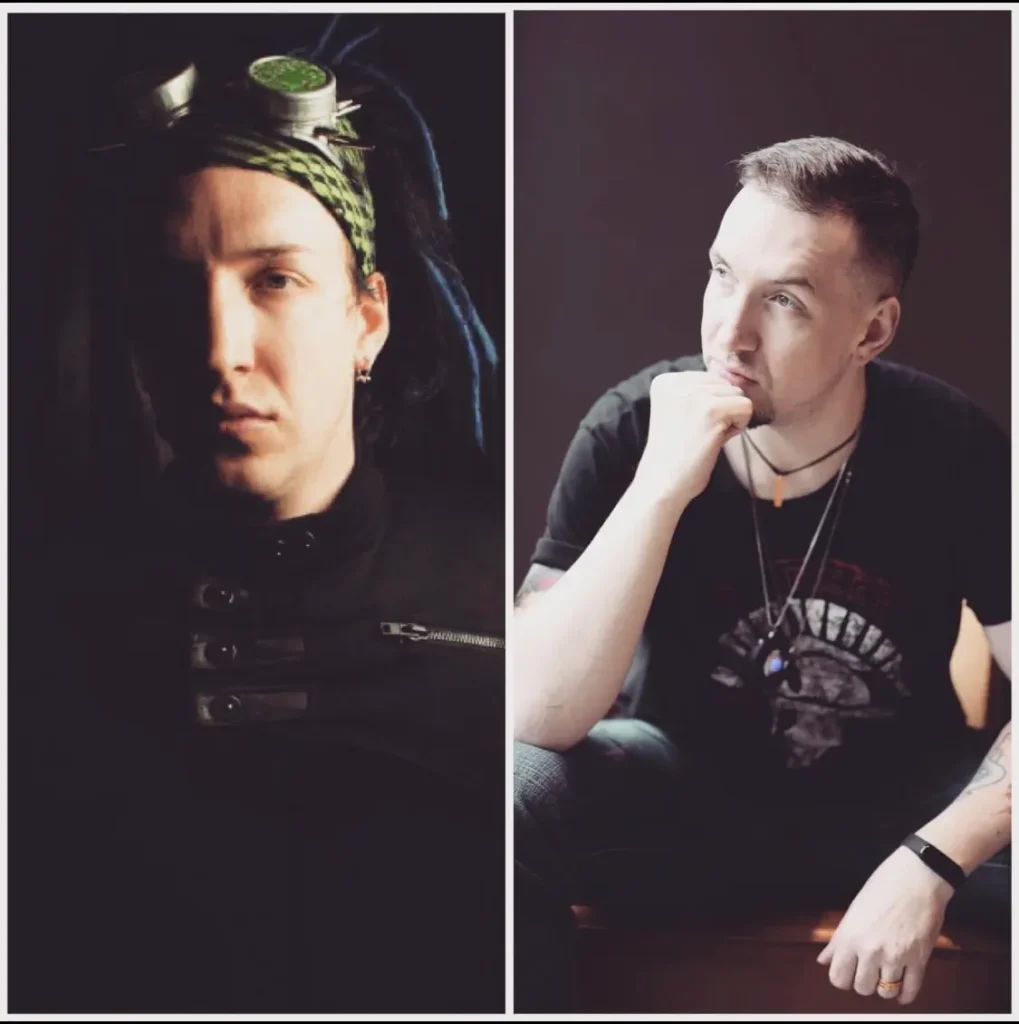
I shake my head, thinking about these things. None of them sound real, but they happened, and a lot more, and that was really interesting, at least until it wasn’t. Life was sensorily thrilling for the most part. So much so that I suffered bouts of depression when I wasn’t on stage rocking a million-dollar sound system because if that was normal, then anything else was dreadfully boring. Luckily, I found mindfulness, stoic philosophy, and CBT (cognitive behavioral therapy- not the one you get from the dominatrix). The journey led me to some near-death experiences in some extremely inhospitable surroundings. One day I was a 15-year-old kid in grade 9 math, and then I went dancing and never came home. Suddenly I was a plucky teen DJ that had to face down thugs and gangsters in Brooklyn, NYC, to get my gas money home to Canada. I was a freelance event runner that had to face off with biker gangs and organized crime that tried to profit off my hobby of making dance spaces magical. All before I was 18 years old. In the heart of the black rock desert, I embraced a dream to become a detective, focusing on existential mysteries. I tried being a clown, doing stand-up comedy, and hosting burlesque and Weimar-era-themed cabaret events. It was a lot, and I met many interesting people from all walks of life and listened to their stories.
When I felt I’d discovered all I could in the Western world, I went East and started over with a new life in the secret cyberpunk megacity of Asia- Chongqing, China. And I’ve found new things to learn, experience and write about. Oscar Wilde said, ‘there is no such thing as good and evil people, just charming and tedious ones.’ My life in China has been full of surprises that I could never have imagined, and it continues to astound me utterly on a regular basis. I live in a near-constant state of agitated confusion. Creatively, it’s very helpful. For the past decade, I’ve been a professor in residence, newspaperman, editor, and professional writer. I became a ‘COVID guru’ and got to hang out with Jeanne-Claude Van Damme as we tried to rebuild society together, and came very close to recording an anthem for staying home with Justin Bieber, but in the end, it didn’t click. My life is extremely bizarre and has become increasingly absurd, but I have succeeded in knowing a few things, and most of it has not been boring.
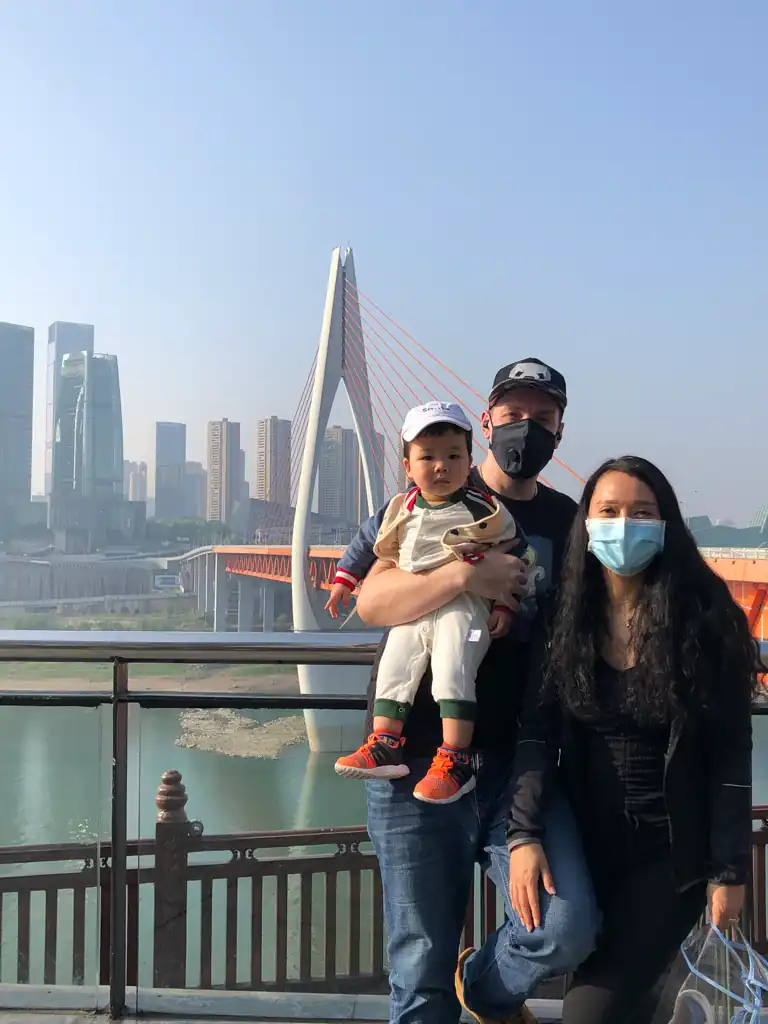
N-F-V: You are originally from Canada, but you’ve now been living in China for years. Tell us a bit more about your life as an ex-pat and moving to a new country: was it a total cultural shock or love at first sight?
I think it was both. Let me set a scene: I left Toronto in 2014. Within 24 hours, I graduated from a teaching program, said goodbye to my family, and moved a van of some belongings out of my apartment (and into storage with my family), hosted a huge circus and burlesque event that 1000 artists, friends and creatives showed up at and we danced until dawn. I came home and realized that I’d left my fancy designer bathrobe and pair of handmade boots- gifts from a good friend – on the back of my door, shoved them into my suitcase, left the key under the mat and became, legally homeless, and hopped in a cab to catch a flight to Beijing. My suitcase was overweight, so I had to wear a handmade pair of gold lame boots and a fluffy blue bathrobe, wearing Elvis glasses while I drank mimosas all the way to Beijing (I was that guy). We landed 12 hours later, and I washed my face, and was driven to a welcome feast where my host tried to drink me under the table in traditional Chinese greeting culture. When that finished, our team, a group of Canadian teachers, was shuttled to a KTV hall to experience Beijing by night until about 5 am, where we were dropped back at our hotels and told to get a good hour or two of sleep before we spent the day walking the Great Wall of China. I ended up wearing some sort of Song Dynasty armor cosplay and made a lot of friends that day. That was just the speed of China, it took the chaos of my life in Toronto and just amplified it, and it was a mile a minute. Every meal was a ludicrous feast, and every day was a tour of an ancient wonder, and I was gobsmacked and in love with it but utterly confused and didn’t understand a thing.
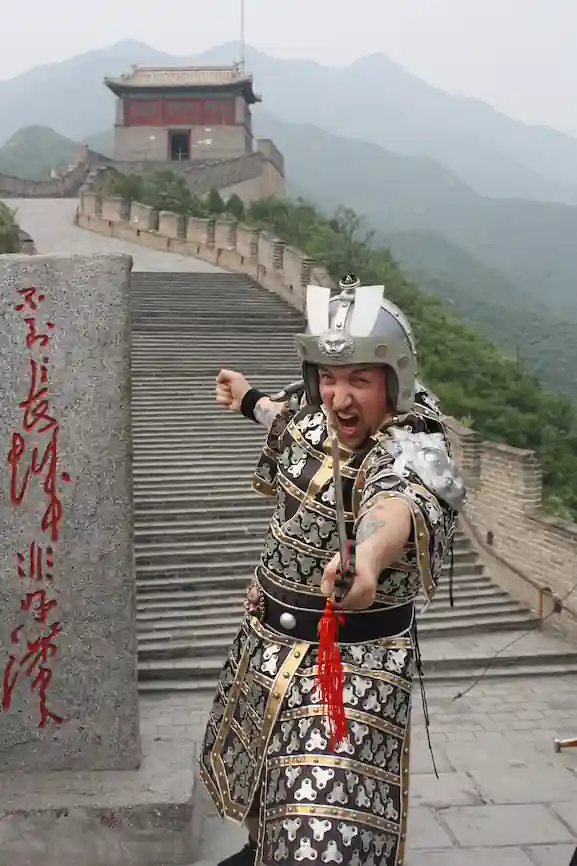
Jorah Kai tackles the Great Wall, 2014.
Nearly a decade later, I’d say I managed to get a better sleep schedule figured out, mainly thanks to my wife, whom I met in Chongqing. Xiaolin is my rock and my compass, and my love. But we are absolutely different in many incredible ways. My friends were shocked to hear I finally got married. They never thought I’d find ‘the one.’ I dated poets and artists, designers and models, CEOs and actresses, teachers and gangsters, wrestlers, suicide girls, dancers, and dominatrixes, but when I moved to China, I knew she was the one. Xiaolin – or my Shaolin – has the comedic genius of Rowan Atkinson (Mr. Bean), the profound wisdom of Yoda, and the sex appeal of a mid-90’s Tia Carerre to my Mike Myers’ Wayne(’s world). Can you say Shwiiing?
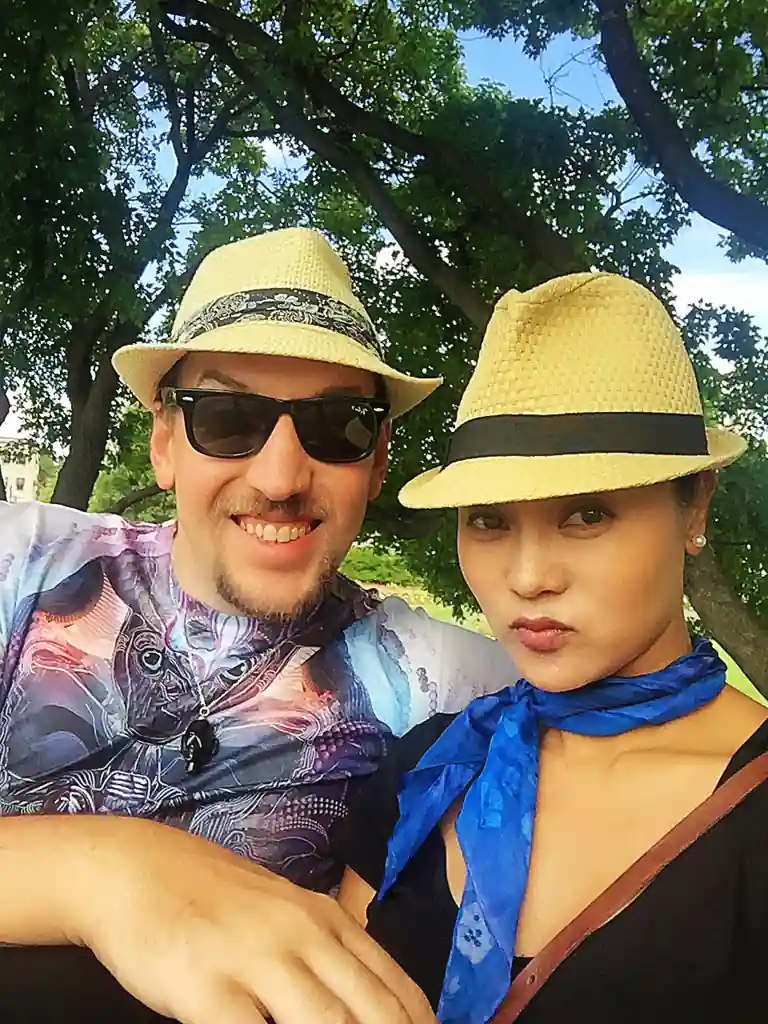
I’ve learned so much about myself and the world in a decade overseas, but I am still generally confused about nearly everything. I’ve learned to let go. Let go of the need to control my life, let go of fear and anxiety, and just be happy with the day I have and try to make it a good one. I’ve finally built a quieter life here in China, amongst the chaos, and it’s let me publish seven books since 2020, and I have a few more drafts that I’d like to see published in the next year or two as well if life is kind and I am lucky.
Sometimes I wonder about my decision to leave Canada, even the western world, and end up literally about as far as a human can go without coming back to the other side or leaving the planet, on a mountain in southwest China, in the world’s biggest municipality of 35 million, in a secret cyberpunk supercity, rainy, foggy, or, usually swelteringly hot.
Then I read pieces about the struggles of paying the bills in the west and remember why the opportunity had seemed so exciting. In a world of gig economies, it was a full-time job with benefits and time off to write. A chance at a fresh start to live my dream of writing piles of books without distractions. It was a free house, on campus, at a time when housing was getting harder to obtain. A decade later, it looks like none of those problems back home have improved, but my life in China has grown immeasurably. An artist who struggled to pay rent has become a landlord (I rent a place to a single tenant, but that counts, doesn’t it?). We’ve got a new writing retreat by the ocean paid off with lots of hard work and savings (a formerly very foreign concept to me), I’m excited to spend time writing new books while my wife paints by the sea. It sounds like the dream I had at 12, writing with my toes in the sand, laptop chugging away, books happening.
Sometimes, if you listen, your brain will propose radical solutions to what feels like insurmountable problems. How far will you go?
N-F-V: Not for Vanity focuses primarily on English and American audiences, so we are curious… What’s the public’s approach to books and reading in China? Any interesting facts you could share with us?
The Chinese love to read, but the market for English books is quite small by comparison with Chinese novels. My Chinese is not great, but my works have been translated, which has been really interesting. I mean I live in a city that is the population of Canada. Making it big in a country of 1.4 billion people is a whole other level of success, and so far it’s going pretty well. It’s been incredibly supportive to work here. I sort of lucked into one good situation after another. My latest novel, Amos the Amazing, is a fantasy book through and through but also a solarpunk fantasy novel, and it’s due to come out this year with a huge Chinese publisher that did incredible things with Cixin Liu’s ‘Three-Body Problem,’ so, fingers crossed, it could become quite successful here. Local media heard about it and I just wrapped filming of a pilot TV show where I explore solarpunk stuff around China and check out ancient culture and I have no idea what’s going to happen with that but it will surely help promote the book. I plan to write more in this world and would love to see it adapted to film. I think there’s a great market in China for local content. They love western books and movies too, so sort of doing a hybrid, a ‘Chinese Harry Potter meets Alice in Wonderland’ kind of thing that shows off and explores China, and combines Western and Eastern myths and legends, magic and fantasy, science fiction and the dreams of a solarpunk green energy revolution, well, it’s all quite exciting. It takes the edge of my existential ennui. It’s always good to have hope.
I think a real problem with artists in the modern era is a severe lack of suitable patrons. In the renaissance days, the great masters often had extended offers in pretty swanky digs. They were fancy guests in wealthy courts and had room and board provided in posh castles in exchange for some conversation and a couple of flattering portraits a year, and they had time to work on their own projects. There wasn’t a lot of that going around in Toronto when I left, other than maybe marrying rich, so through some serendipitous happenstance, I took a chance, got a free trip to Beijing, Chongqing, and Shanghai, explored some interesting ancient culture, wound up guest teaching at a summer camp for 10 days, and when I got a job offer – it looked pretty good. When I realized it came with a free apartment on campus, and the tax rate was tiny compared to what I was used to in Canada, it was an even better deal.
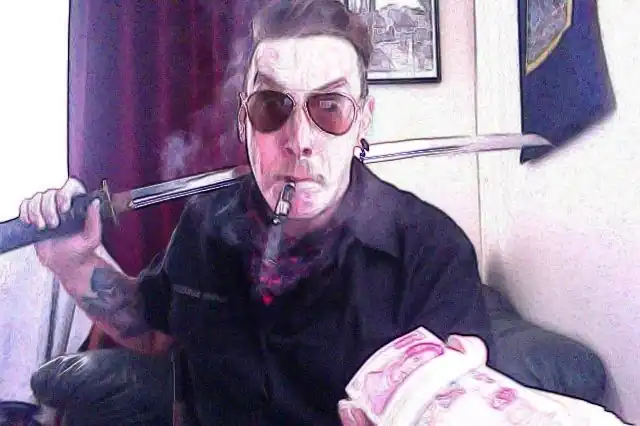
So that’s how, as a good friend of mine likes to say, the ‘gonzo journalist, Hunter S. Thompson of the ’90s dance music scene took a job at Chinese Harvard’ and traded a couple hours a day lecturing to international students for the time and space to sit and think, work on my hobbies, decompress from the stress of decades of touring, and eventually get to work writing the books I wanted to write. A teaching gig works great for me, on a daily basis, it’s not too demanding, and with about 4 months of work off, plenty of time to devote to writing, and one of my other favorite hobbies, travel. It’s taken me to places that even my music career never could. I hope to get back to travel this summer! It was a big change for me, but of course, a great new experience when I thought I had already seen it all. I had sampled every kind of life I could and the final frontier was getting married, holding a steady job for a decade, and playing one out as far as it would go. I went from Superstar DJ to a writer-in-residence, professor, father, and grandfather in a decade. You’d be forgiven for assuming I have a time machine and use it regularly (in fact, only sporadically would be more correct).
N-F-V: In May 2020 you published your first book ‘Kai’s Diary: A Canadian’s COVID-19 Days in Chongqing’. What made you decide to put pen to paper and tell your story? How did it feel to be the unwilling pioneer of a new “Covid Life” nobody knew how to handle back then?
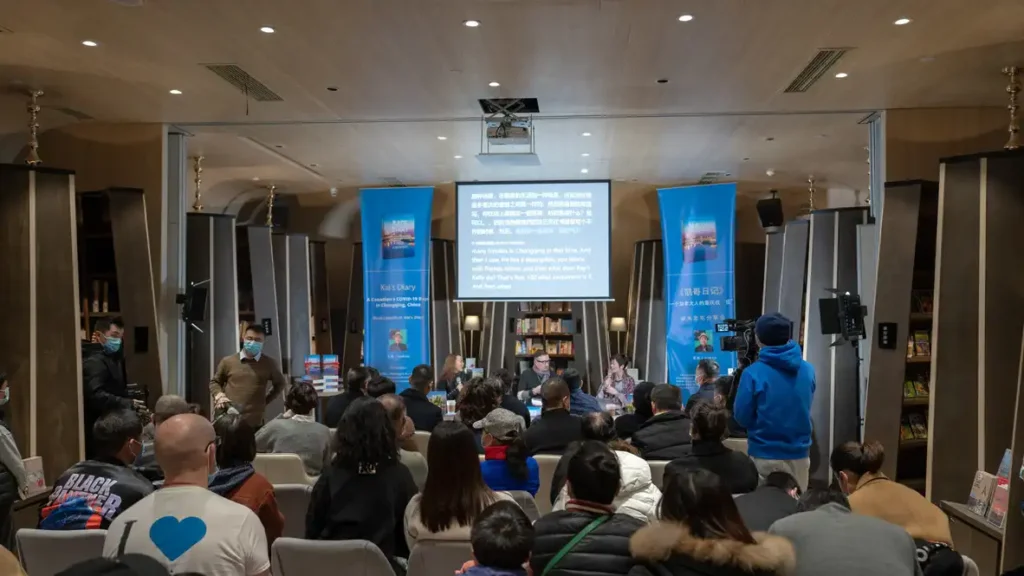
It was terrifying. As a poet, I took the pandemic extremely seriously, almost comically so. I washed my hands and masked like it was performance art, like the way Jim Carrey did Andy Kaufman. And it was mostly scary that after spending 30 years studying creative writing and taking classes and drafting outlines, I might die with a few binders of unpublished books and never know if I had the stuff to really make a mark as a storyteller. That was my ‘Snows of Kilimanjaro (Hemingway)’ moment, where he lies around dreaming of all the travels he never wrote, of all the novels he had in his belly that he was saving for later but would never live to write. It put a fire under my butt, and I got to writing whatever stories I could… first, a diary about the very scary and new situation I encountered, plus vignettes and dreams and a bit of what felt like ‘time traveling.’
There was a lot of scientific speculation and then as my ‘diary’ unfolded over the 3 years, became much more philosophical. I published the first 60 days with a huge Chinese traditional publisher, in English and Chinese, and it became a nonfiction bestseller here, won some awards and was voted a ‘top novel in China for 2020’ by some publishing agencies. I was astounded. Here, I had heard there wasn’t ‘free speech’ in China. Still, here I was, publishing an internationally syndicated column in Canadian and Chinese news, sharing my gripes and griefs and shower thoughts, data, fears and projections. I was winning awards from Journalist Associations and accolades from the local government and the foreign affairs office for my ‘good work during a crisis.’ It was quite encouraging, and I got to writing my fantasy novel and decided to keep the fire burning, to see how many books I could get done in this short lifelike dream that has been gifted to me, one day at a time.
N-F-V: ‘Kai’s Diary’ was hugely successful and published both in English and Chinese: what happened next? (What I mean by this is: can you give our audience an overview of the subsequent work originating from this first publication? As I understand it, you’ve been writing a number of books around your experience of Covid/post-Covid in China).
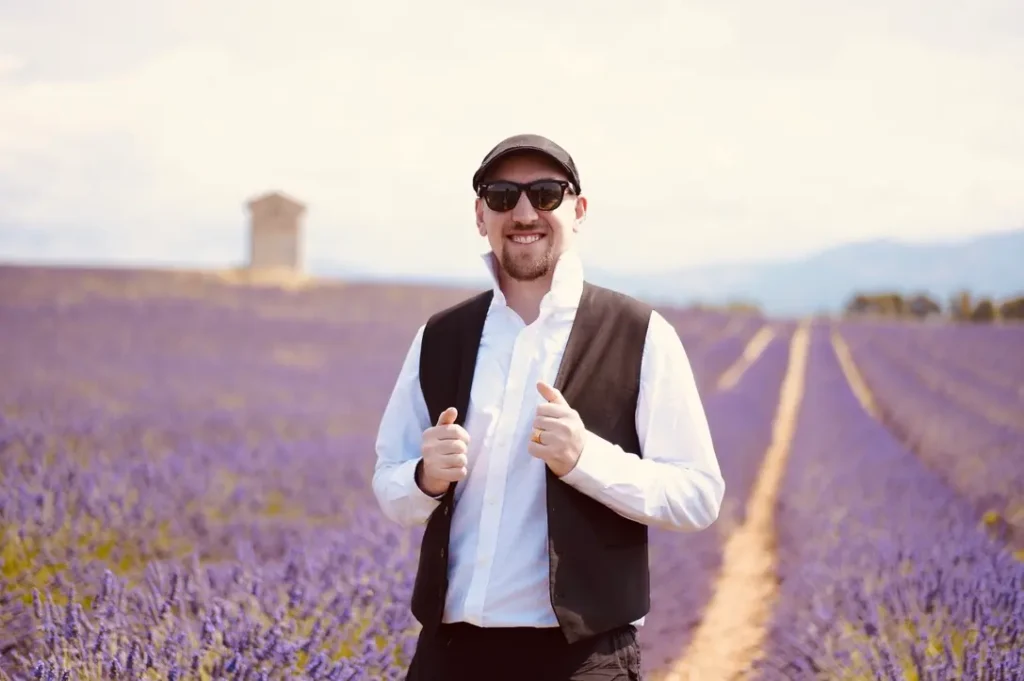
As the pandemic spread, I curated blogs from friends around the world to continue this journey as a book, Year of the Rat. Rats are funny, in Asia they’re seen as clever and smart, in the west they’re dirty and plague carriers. This curious Yin and Yang really interested me, as so many things do when you have one foot on each side of the world and exist in a totally alien culture that becomes more ‘normal’ to you than the country you came from. The year 2020 hit very differently worldwide, and it was very interesting to document all the different responses, thoughts, fears and ideas, for posterity. That book is about 800 pages, quite a tome. While my friends and family were in their own lockdowns in Canada and the US, Europe and Africa, I became a published author, was doing regular media appearances, and even met my childhood hero, martial arts movie star Jeanne-Claude Van Damme at a COVID recovery event – and included some of his thoughts in Year of the Rat. It was all very surreal. By 2021-2022, as the Chinese COVID-0 plan meant months of ongoing lockdowns whenever cases became outbreaks in my city, I kept writing (essays, a media column, my fantasy novel, other drafts, and these philosophical books), and the third book in that trilogy, what I call the Invisible War trilogy, Aye of the Tiger, is almost absurd, a little Albert Camus, in my own way, but it was all me walking myself through a tough conversation. I read this great James Baldwin quote about what a shame it is that most of humanity does all it can to ignore the only simple truth of life: that we will all die. So I asked, what does it mean to realize we might soon die? Does it hit differently when your dreams are not yet realized versus when your bucket list is complete? Over the course of the three years, I went from being unpublished to having seven books out, in multiple languages, a couple of which became best sellers in their own niche genres. I had won awards, was a regular on TV and guest at some pretty heavy conventions hanging out with former presidents and movie stars. These diaries – well I don’t expect them, as a new trilogy to become a best seller for a decade, unless Amos becomes the new Game of Thrones and even then. The others I just put out I think for posterity. I don’t imagine many people want to read about COVID yet. Still, in 5 or 10 years, it might be a welcome look back at a special, very strange time in our lives. For me, it was a transformative period, where I looked death in the face and realized, if I’m going to die soon, I’m going to do my best to realize my dreams, to write, to travel again, to help others, to make amends and conquer fears and make peace with my self and my family. I haven’t been back to Canada in five years, and I’m not sure when I will see them again, but my dad has every one of my books on his shelf, and it means something to me that I can leave behind that legacy, no matter what the future holds.
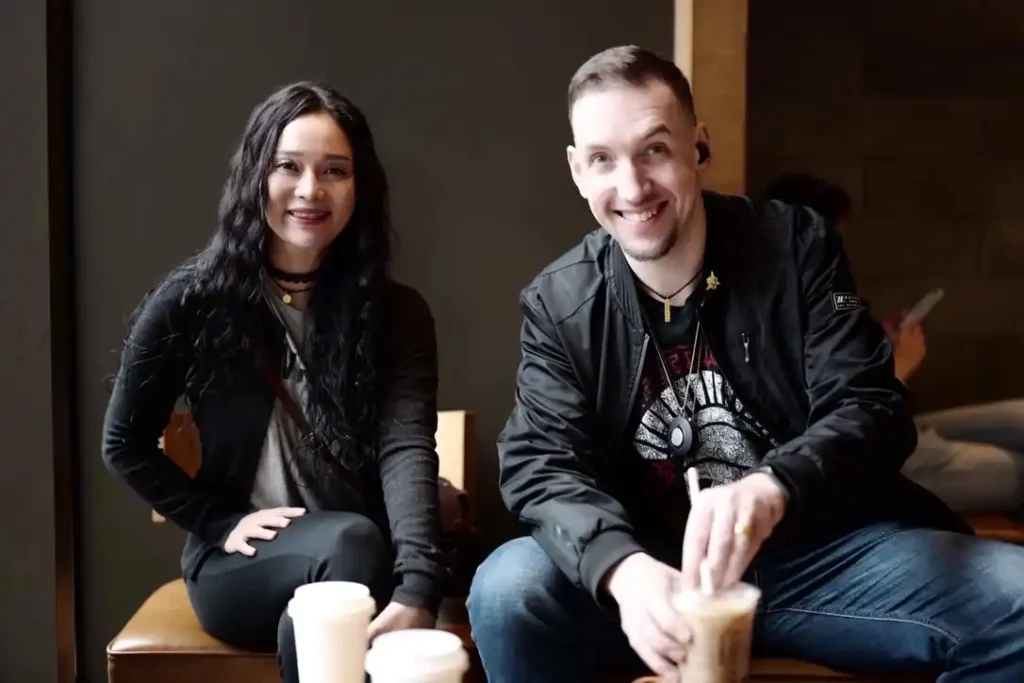
In the end, every one of us dies, but as Shakespeare cleverly wrote in Sonnet 18, his most famous love poem: ‘But thy eternal summer shall not fade, Nor lose possession of that fair thou ow’st; Nor shall death brag thou wander’st in his shade, When in eternal lines to time thou grow’st: So long as men can breathe or eyes can see, So long lives this, and this gives life to thee.’ Writing is a kind of magic, like a twinning of souls. The fact that we can pick up books and sit with dead writers of many ages, sit with them, and feel their ideas come to life again in our minds truly is magic. And if I work hard enough, I’ll write something that will sit next to their books on the shelf of a boy or girl that I can hopefully inspire, just as their books inspired me. When I was finishing Amos, I got some great encouragement from R.A. Salvatore to keep going, and we discussed how passing the torch was the best feeling in the world. As a kid, his Drizzt novels were everything to me, so as an emerging fantasy author, his encouragement to write meant the world. I keep a framed picture of his signed book above my desk, with his words to write every day, spurring me on. Twitter has been a great place for me as a writer, and I’m glad Elon hasn’t totally destroyed it yet. If I ever make it back to Burning Man and bump into him on his electric dragon while riding my friend’s metal fire-breathing dragon, I will thank him for not completely destroying that writing connection because it is one of the tenuous threads I have back to the western world and it means a lot to me.
To be honest, before the pandemic, I was a little depressed and had a bit of malaise: I worried about the collapse of society and the rise of AI and wondered how long it would take to write, query, publish, and all that and if I’d be writing to robots and mutant scavengers in the apocalypse by the time I got my act together. The pandemic was a real kickstarter for me, both in practically getting myself out there and traditionally published and also for the hope it gave me that in a solarpunk future – we might save our beautiful planet. Now that people are straight up writing books with the help of – or just getting them written by – Chat GPT – I can at least feel satisfied that I managed to squeak out a few books before AI (maybe) did it better. And I realize we’re not there yet, so I’ll enjoy this age too and try using AI as an assistant to get work done. If James Patterson can collaborate with jr. writers to pump out a dozen best sellers a year, GPT could be that hired help for us regular Joes and Jill writers, and that is nothing to fear, but rather, embrace. It’s a great tool.
N-F-V: At the end of 2022, you released your second book ‘Amos the Amazing.’ Could you give us a brief synopsis and tell our audience what a “solarpunk fantasy novel” is?
Solarpunk is an imaginative literary and art movement that speculates on what it would look like if we solved current and future pressing problems such as social inequality due to late-stage capitalism, the climate crisis, global warming, and a lot of other social issues to reshape our society and world into something a lot more like what you saw on Star Trek. I live in a cyberpunk supercity in Asia of 34 million people. It sounds cool and looks great at night, but I want to highlight more than that – actually, it’s inspiring to live in a place that is both the world’s biggest polluter and the world’s biggest provider of solar power. To watch coal power plants transition to wind, water, and solar power, to see Chongqing become a sponge city… like it’s all very exciting for me. Solar punk envisions a world where we have overcome these social and environmental problems using technology, shifting to green energies and away from fossil fuels. Often, it involves a political shift somewhere between socialism and radical anarchism. Still, I’ve even wondered if AI would do a better job than what we’ve got going on now anyway. However we get there, we need to break through the log jam of big industry lobbyism, corruption, and resistance to new energy solutions and create a world where we live in high technology and harmony with nature. Say what you will about them – and I have some tough words for billionaires and how they manage to become real-life dragons, but Jeff Bezos does want to create Earth into a park and offload polluting industries into space, and Elon Musk did really move the needle on electric cars. In China now, there are so many electric vehicles, millions of charging stations, and even hydrogen buses that create water instead of CO2 when you drive them. So it feels very exciting to be in this country now. I hope this book and other solar punk books can inspire young readers to go into the sciences (and magick) and help change the world, recreate it into something amazing, high vibration, full of imagination and potential. We could be so much more than we are, and we have the tools to reach it.
N-F-V: What was your source of inspiration for the story, and what would you like readers to take away from reading it?
Amos was a great mix of many things, it is a love letter to the hundreds of fantasy novels I read as a child, and something I wanted to do for many years: mix science fiction and fantasy, using frames, to create a deeply layered experience. There is a LOT of world-building to unpack in sequels, which I think will be fun. I also choose Chongqing as the setting because it’s a wonderful and surprising city that many English speakers have probably never even word of. I used to take some students from the city to help teach rural village primary school students English on an annual spring trip before the pandemic, and it was quite an experience to watch the city kids adapt to rural life in China. That was part of it, as well. I love the opportunity to create a story that is both western and eastern, and my translator, Dr. Fei Gao, who has been a wonderful source of encouragement and support all along, has been really positive about the work as a cross-cultural achievement that, according to her, is quite interesting to Sinologists and experts in English-Chinese cross-cultural studies, which is, again, really interesting.
As part of my writing process for this book, which was really interesting, I was asked to do a reading in Tongliang village, China, for a group of university students from Hong Kong, Macao, and Chongqing and sign some of my past books for them. I decided to write a chapter of Amos from a draft I had done up and read it at the event as ‘part of my next book.’ The response I got was incredibly encouraging, and Dr. Gao, who I met at that event, offered to facilitate a beta reading project with me: she said if I had a book to workshop by September 1, we could teach it to her cross-cultural and literary studies students. So that was, like, mid-June, and I went off for my summer break and wrote the book. By August 31, I had a draft of it, and then we began an intense 15-week course, where I scrambled to get each section polished in time for the students to read and comment on it. It was super intense and very interesting. It’s been exciting to be a writer in a foreign country these past few years. As much as I love my native Canada, I can’t imagine having the same opportunities there as I’ve been lucky enough to have here.
What would they like to take from it? I don’t want to spoil that, but I hope it inspires them to read more, believe in magick, and maybe help this world become a little more solarpunk. If I can inspire some clever kids to go into STEM fields and help invent the technologies I dream up and make our world a better place, that’s amazing. Also, with all this war machine saber rattling, I’d like my readers to know my experience. China has been a great place for me to live and work. It’s a lovely place to live. The food is juicy and delicious, and the cost of living is affordable. I think a lot of western leaders and media need an adversary to point at so people don’t ask them the hard questions about why inflation, addiction, and the environment are so out of control or why lobbying makes it legal for big corps to bribe leaders to do bad things instead of responsible ones. Still, if my books can shed some light on the beauty of other cultures and the wonders of China, too, maybe a few people will open their eyes and turn the conversation back to making their own country better rather than trying to bomb ones that are just doing their best and to be honest, the amount of work I’ve seen happen to encourage clean energy, electric and hydrogen cars, etc. in China is amazing. If the west doesn’t get its act together and step it up, China might just save the whole world by itself.
In the end, I moved to China by chance, but also, it’s very interesting to be in this ancient culture and also a very powerful nation, and have, what I hope, is a positive effect as a cross-cultural ambassador. Also, if you love Chinese food, you’ll never have as authentic Chinese food as if you come to China. It’s the real deal.
N-F-V: Any other interesting writing projects in the pipeline?
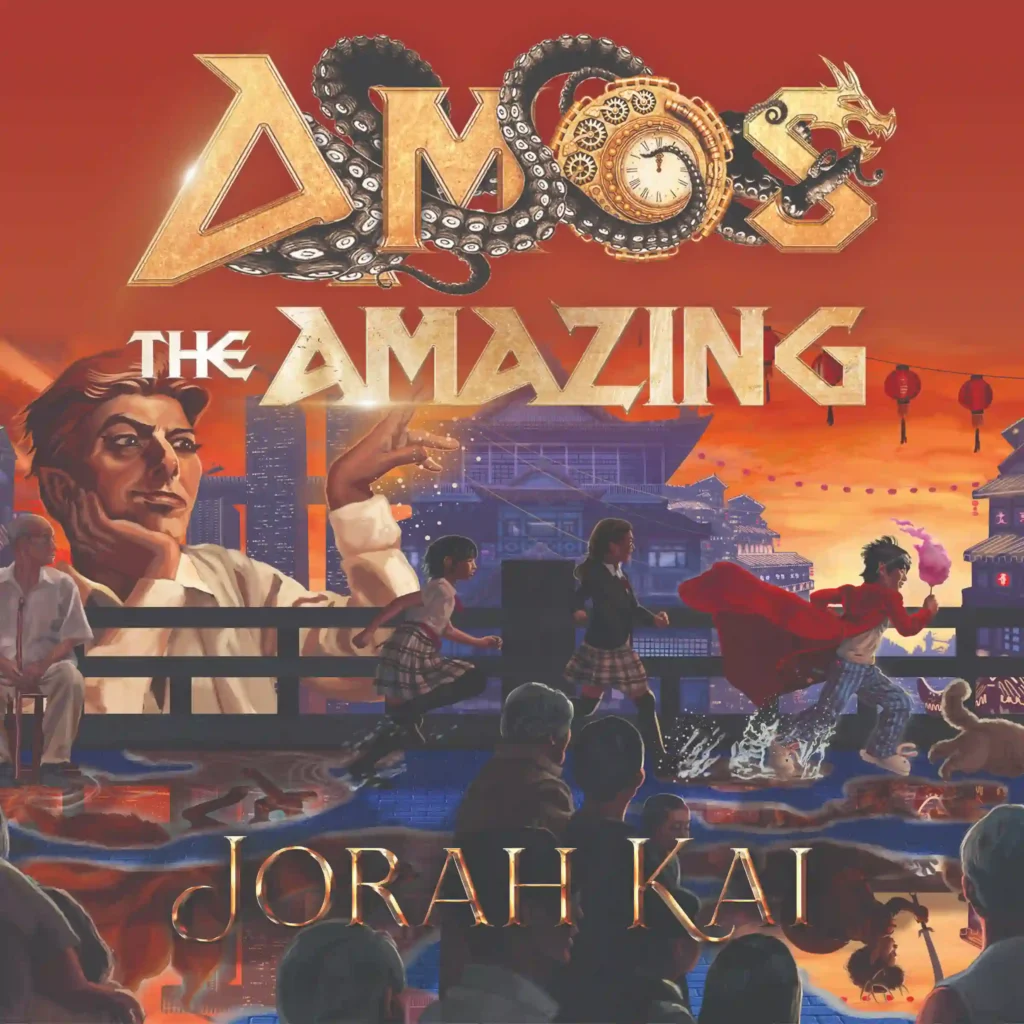
I’m almost done proofing the Amos the Amazing audiobook, read by award-winning voice actor Christian Neale and that’s super exciting. The way he brings the characters to life is incredibly entertaining, and it was really cool working with him to realize this project. I’m also working on rewriting a novel I wrote (drafted) about four years ago, and I think it’s time to get it out and done. I hope to get it translated into other languages and also write it as a screenplay when it’s done – it’s very cinematic and, I think, has commercial appeal. I’m working on a few experimental forms as well that are exciting because they’re ambitious and strange and feel like very new territory, and that’s exciting. After centuries of writers saying all stories have been told, we have some really new territory to break bread with, and that’s thrilling. I am going to write a book about the history of Solarpunk, but at the moment, I’m weighing out making it a nonfiction book or a fictionalized novel – I actually have drafts for both, and both have pros and cons. I believe it deserves a nonfiction treatment, but the audience for fiction is much bigger, and I want to reach as many people as possible, so I am leaning towards a cyberpunk-style adventure with possible solarpunk futurism, inspiring people to create a future worth living in. My Chinese publisher wants me to write many more ‘Amos stories, so I will return to that world after a little break and a few other books because I want to be a better, more cohesive, and clearer writer when I return to it. As my protagonists age, I think the demands for a more mature voice will push me to take it to higher heights, but it’s another great challenge I’m also looking forward to.
N-F-V: As a very experienced writer, what advice would you give to aspiring authors approaching publishing (or self-publishing) for the first time?
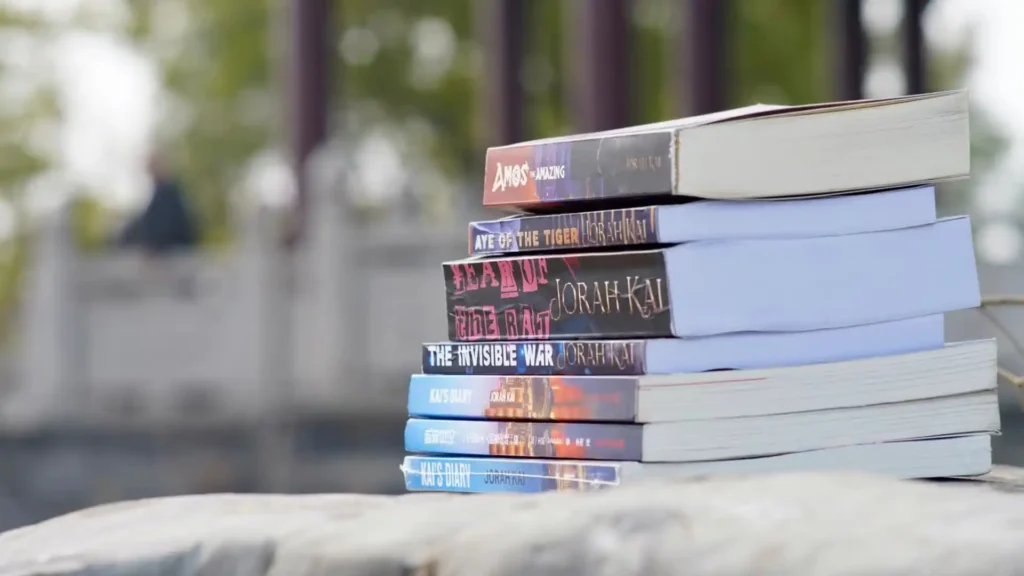
I get a little surprised to hear myself described that way, but I’ll take it. I guess if you do anything for long enough, it’s inevitable. Whether you choose to go down the route of traditional publishing, self-publishing, or hybrid publishing, it’s a lot more work in social media, marketing, and promoting than you probably realized. The great thing about traditional publishers is you just give them the book, and they guide you the rest of the way. The problem is they may say no for a long time before one says yes, and they may require a lot of sacrifices or compromises you might not want to make. For self-publishing, it’s the converse, you dictate the timing, the material, and absolute creative control, but it’s also on you to get your cover done to a standard that someone might find appealing, recruit your team of beta readers and editors, and decide what quality of book is enough for your purposes and your audience. I’ve done both, and they both have their advantages and disadvantages. Working with my friend Garrett to create More Publishing as a micro ‘boutique’ imprint that primarily is focused on amplifying English voices and telling stories of China which is relevant to our daily lives here (I’m in Chongqing, he’s in Chengdu, about an hour away by high-speed rail). By publishing Amos in English first, I was able to get it to a level I think is about as good as it is going to get now, meaning that the Chinese translator and the traditional publishing house in China are getting a better Chinese product in the end, and I get to share it in my native language this year instead of in 5 years or so, so we were all happy about that. I’ll give you some advice that works for me, the students I’ve taught over the last decade, and advice we’d give to prospective writers hoping More Publishing might want to publish their novel; I think, in general, it’s reasonable advice for any writer.
First, dream it, and then work like you want your dream to come true. You have to make space for your dream to grow and then wake up every day and work like you believe your dream will happen. Inspiration and perspiration. Two, plan and outline. Take your book and break it into bite-sized chunks. One day, write a logline; the next, give me a paragraph showing 3 act structure. Break it into chapters the next day and tell me the beats you want each chapter to hit, then wake up and give me 2000 words for Chapter 1 before lunch. If you can’t write a scene in artistic and literary glory, give me the bullet points of what happens, and know you’ll get back to it to fill it in later.
When you’ve got that glorious first draft, that’s great, but the job is only beginning. Be ready to work on those lines and scenes 70 times if that is what it takes to get it right, and find beta readers who can give honest feedback and fill in your gaps. Want to write an action scene but never held a gun? Just do your best and then find someone with that experience to help you get the weight right later. Rewrite and revise until you’re ready (or have) to let it go. I had to let Amos go in 2022 because the translator and publisher were hungry for it. I could have written it for 3 more years, and it would have been a better English book, but I had to take the chance that I did when I did it, and we’re still cleaning up typos here and there, but the editors did a great job and
I think it’s a lovely story. I want the next one to be 1000% better, so I’ll keep pushing myself harder to learn and grow. Lastly, if you write for everyone, you’re writing for no one, so consider your audience. Picture someone and tell the story as you want them to hear it.
In the end, what I learned from my diaries/nonfiction trilogy, The Invisible War, and replicated with Amos and other books going forward, is the difference between a hobby writer with a draft on their shelf and a published writer with thousands of copies sold is a mindset. As Stephen Pressfield so eloquently says, if you want to go pro, you’ve got to act pro. It’s about not giving up when you get to the end but pushing on harder than you’ve ever pushed before. They call them book babies for a reason and it is labor – but it’s a labor of love. Treat it like it matters and needs to be born for the world, and you’ll get it done.
The first one is the hardest. You’re proving to yourself and to the world that you are a writer and you have at least one good book in you. It gets easier after that. You have a roadmap, you’ve done it before, and you just have to do it again. Don’t worry about being a genius, don’t worry about anything, just do your best, show up to the desk and write and welcome the muses when they come. If you write a bum book, maybe you just had a bum muse. Write another one. They’ll get better, and so will you.
If I could leave you with one final idea, it’s the duality of this: Writing is Magic. You are sharing your mind and yourself with the world, and if you do it well, people who aren’t even alive yet will spend time with you in close communion years after you’re dead. But writing isn’t magic. It’s a job, and it’s hard work. And you may dream of being a writer, but until you show up at your desk every day and make the time to get your books done and meet your muses halfway, you are robbing yourself and the world of your potential. So get to it, and show us what you’ve got.
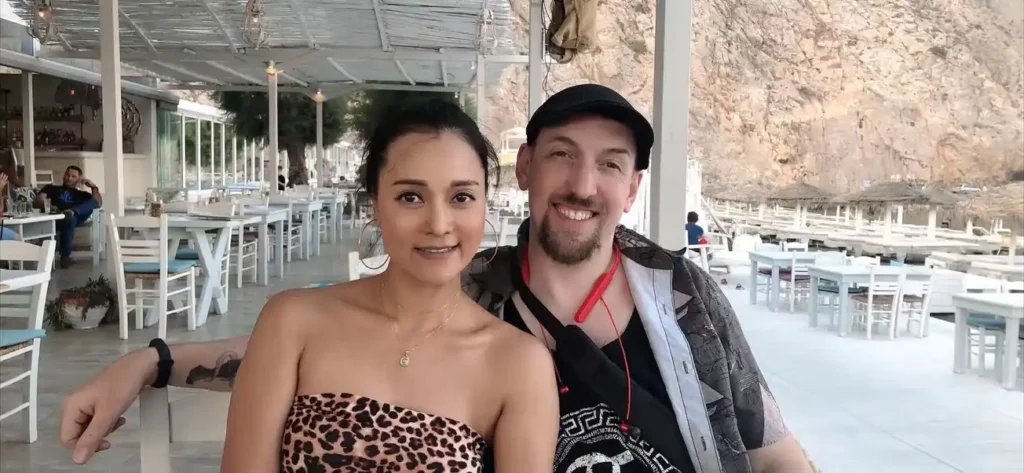
Thanks so much for your time! Really appreciate speaking with you and hope your readers get something out of this.
With warm regards and twinkly toes, as we spin purposely about on a beautiful blue ball through the endless vast emptiness for what seems like an awfully long time,
Jorah Kai
